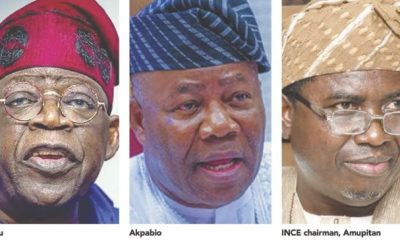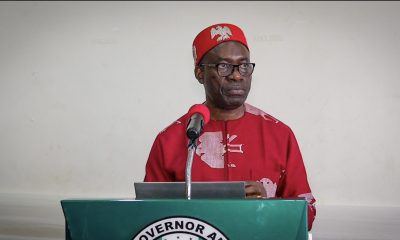The Northern Governors’ Forum has expressed strong reservations about President Bola Tinubu’s proposed tax reforms, citing fears of regional economic marginalization.
The reforms, which include the Nigeria Tax Bill, 2024, and the Joint Revenue Board of Nigeria (Establishment) Bill, 2024, aim to overhaul Nigeria’s tax structure to enhance revenue generation.
However, northern leaders believe the changes could exacerbate economic inequalities, sparking a nationwide debate on fiscal fairness and federalism.
The most contentious aspect of the reforms is the proposed restructuring of Value Added Tax (VAT) distribution, which could shift revenue concentration toward states like Lagos and Rivers that contribute the most to the tax pool.
Northern governors argue this change would disproportionately harm their states, which rely heavily on federal allocations due to limited industrial activity.
Borno State Governor Babagana Zulum, a prominent voice in the opposition, described the reforms as potentially “inimical to Northern Nigeria,” warning that the current provisions favor industrialized states at the expense of agricultural and less-developed regions.
“We conducted thorough research and found that these reforms could strip Northern states of critical revenue streams. It’s not opposition for opposition’s sake; it’s about equity,” Zulum stated during a recent media appearance.
Experts agree that the reforms could significantly alter Nigeria’s fiscal landscape, but opinions diverge on their long-term impact:
Dr. Ahmed Bello, a fiscal policy analyst, warned that the North risks being sidelined economically.
“The North lacks the industrial base to compete under a tax regime that prioritizes revenue generation from economic activity. This reform could widen regional disparities,” he explained.
Professor Adebayo Oyetunji, an advocate for fiscal decentralization, argued that the reforms could incentivize all states to develop robust economic policies. “The North has untapped potential, especially in agriculture and mining. These reforms could push states to harness those resources rather than rely on federal allocations,” he said.
READ ALSO: Tax reforms bills: Analysts weigh in on implications for Nigeria’s fiscal policy
The tax reform controversy also underscores deeper political tensions in Nigeria’s federal system.
Since the 1999 return to democracy, debates over revenue allocation have frequently pitted resource-rich southern states against northern states, which benefit from redistribution mechanisms.
Northern governors view the current reforms as a potential dismantling of these mechanisms, threatening their ability to fund critical infrastructure and social programs.
Analysts suggest that Tinubu’s administration must tread carefully to avoid deepening regional divides.
“President Tinubu must strike a balance between incentivizing productivity and ensuring equitable resource distribution,” said Dr. Funmi Adegbite, a political economist. “A one-size-fits-all tax reform won’t work in a country as diverse as Nigeria.”
In response to the concerns, northern governors have recommended revisiting the VAT allocation formula and other clauses in the bills. Suggestions include: nMaintaining Redistribution Mechanisms: Retaining a system that redistributes revenue to less economically developed states to promote balanced growth.
Gradual Implementation: Allowing for phased adoption of the reforms, giving states time to adjust.
Focus on Economic Diversification: Encouraging Northern states to develop industries and infrastructure that would enhance their tax base.
As the reforms head to public hearings, all eyes are on the federal government to see how it navigates the competing interests. Experts believe that successful implementation will require extensive consultations and compromises that reflect Nigeria’s diversity.
“This is not just about taxes; it’s about Nigeria’s unity and shared prosperity,” said Dr. Bello. “The stakes are too high for the government to rush the process.”
The outcome of this debate will not only shape Nigeria’s tax policy but also its broader socio-economic future, with implications for governance, equity, and regional stability.

 Comments and Issues1 week ago
Comments and Issues1 week ago
 Comments and Issues1 week ago
Comments and Issues1 week ago
 Comments and Issues7 days ago
Comments and Issues7 days ago
 Health6 days ago
Health6 days ago
 Comments and Issues7 days ago
Comments and Issues7 days ago
 Education1 week ago
Education1 week ago
 News3 days ago
News3 days ago
 Aviation7 days ago
Aviation7 days ago

